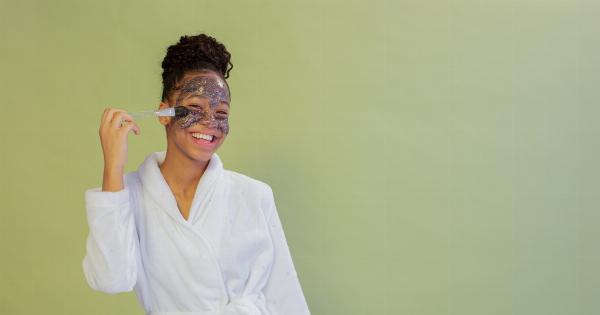Exercising regularly is beneficial for maintaining a healthy body, but it can sometimes lead to dental problems.
Whether you’re a professional athlete or casual fitness enthusiast, it’s important to take necessary precautions to avoid tooth damage while exercising. Below are some valuable tips to help you protect your teeth and enjoy a safe workout routine.
Use a Mouthguard
Mouthguards are an effective way to protect your teeth from injuries while exercising. They are designed to fit snugly over your teeth to absorb any impact and prevent damage.
You can purchase a customized mouthguard from your dentist, which is specially tailored to fit your mouth and provide maximum protection. If you’re on a budget, you can opt for a boil-and-bite mouthguard which can be molded to your teeth at home. Mouthguards come in different varieties, including single-layer, double-layer, and laminated mouthguards.
Choose one that suits your needs and budget and wear it every time you exercise.
Stay Hydrated
Dehydration can affect your oral health, leading to dry mouth and reduced saliva production. Saliva plays a crucial role in keeping your mouth clean and neutralizing acid produced by bacteria.
Low saliva levels can also increase the risk of dental decay and gum disease. Make sure you drink plenty of water before, during, and after your workout to keep your mouth hydrated. Avoid sugary and acidic drinks, as they can erode your tooth enamel and cause dental problems.
Avoid Sugary Sports Drinks
Sports drinks may seem like a convenient way to boost your energy and hydrate your body, but they can harm your teeth over time. Most sports drinks contain high amounts of sugar, which can lead to tooth decay and other oral health problems.
The acid present in sports drinks can also damage your tooth enamel and make your teeth more susceptible to decay. If you must consume sports drinks, choose the ones with lower sugar content, and rinse your mouth with water afterward to remove any residue.
Maintain Proper Breathing Technique
While exercising, you should breathe through your nose rather than your mouth. Mouth breathing can cause dry mouth and reduce saliva flow. It can also increase the risk of bacterial growth, which can lead to tooth decay and bad breath.
Breathing through your nose humidifies the air and ensures that the saliva flow remains at optimal levels. It will also prevent any unwanted particles or bacteria from entering your mouth, which can lead to infection.
Avoid Grinding Your Teeth
Some people tend to clench or grind their teeth while exercising, especially when lifting weights. This habit can cause tooth damage, jaw pain, and other dental problems.
If you tend to grind your teeth, try wearing a mouthguard or practice relaxation techniques like yoga or meditation to reduce stress. You can also try breathing exercises to calm your mind and body.
Be Careful with Weightlifting
Weightlifting can put a lot of pressure on your teeth and jaw, especially when doing exercises like squats or deadlifts. It’s crucial to maintain proper form and technique while lifting weights to avoid any damage to your teeth or jaw.
Avoid clenching your teeth while lifting weights and make sure you exhale through your mouth during the exertion phase of each movement. You can also wear a mouthguard to provide extra protection to your teeth and jaw.
Visit Your Dentist Regularly
Regular dental check-ups are crucial for maintaining good oral health. Your dentist can detect any potential problems, like cavities or gum disease, and take necessary measures to prevent them from worsening.
If you’ve experienced any dental problems related to exercising, consult your dentist, or a sports dentistry specialist. They can provide valuable insights and suggest appropriate treatment options.
Wear a Helmet for High-Impact Activities
If you engage in high-impact activities like cycling or skateboarding, it’s essential to wear a helmet to protect your head and teeth. Make sure your helmet fits correctly and is properly secured before starting your activity.
A helmet can prevent serious injuries to your head and teeth, and reduce your risk of trauma.
Avoid Chewing on Hard Objects
People tend to chew on hard objects like pen caps or ice cubes while exercising, which can cause tooth damage or even breakage. Avoid chewing on anything except food while exercising, and don’t use your teeth to open bottle caps or packages.
Using your teeth inappropriately can lead to chipping or breaking, and even require dental treatment to fix.
Brush and Floss Regularly
Brushing and flossing your teeth regularly is one of the most effective ways to prevent tooth damage and maintain good oral health.
Brush your teeth at least twice a day with fluoride toothpaste, and floss at least once a day to remove any food particles or plaque buildup. Make sure you use a soft-bristled toothbrush and avoid brushing too hard, which can damage your tooth enamel. Good oral hygiene practices will keep your teeth healthy and strong, and reduce your risk of dental problems.
Conclusion
Exercising is essential for a healthy body and mind, but it’s equally important to take care of your teeth and oral health. Incorporating these tips into your workout routine will help you avoid tooth damage and maintain a healthy smile.
Remember to wear a mouthguard, stay hydrated, avoid sugary and acidic drinks, practice proper breathing techniques, and maintain good oral hygiene practices. Always consult your dentist if you experience any dental issues or have questions about dental care while exercising.




























